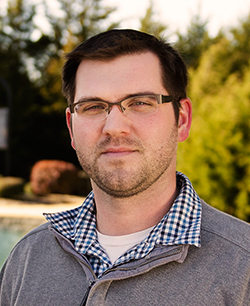I took two semesters of church history in college. The primary fact I learned in those classes was that I had no interest in church history.
Recently, however, that has changed. I have developed a sort of obsession with it. All the books and podcasts I am consuming have taught me that many of the issues Christians are dealing with today are nothing new. The battles certainly have their differences, but there are countless similarities.
Standing where we are in history gives us the ability not only to understand the issues of the past with perspective but the opportunity to examine our spiritual ancestors’ responses and seek modern application.
Abortion
We tend to think of abortion as a very modern phenomenon. Yes, the murder of a defenseless child still inside the mother’s womb is very new, but the murder of children is not.
The Twelve Tables of Roman Law obligated parents to kill deformed children by exposing them to the natural elements. Many female babies were left to the elements simply because sons were more desirable. This is not much different than today.
Christians in first- and second-century Rome would patrol areas where children were commonly left for dead and rescue them to raise them as their own. They adopted these outcast children and became a testimony to their culture. Certainly, Christians spoke out against killing children, but they did not wait for the culture to change. They acted.
This is not to say every family should adopt; not every Christian family is able to do that. But adopting children is a great opportunity, so is taking in a struggling mother who is at risk of aborting her child. There are also opportunities to support families who do adopt or foster. There are plenty of opportunities to serve; we just have to be willing to act.
Religious decline
I have been blessed to dedicate the last three years of my life to establishing and growing AFA’s ministry for Millennials, Engage. During that time I have read countless studies saying Christianity is losing my generation. Now studies are focusing on the next generation, and, apparently, they are even less religious.
Without a proper understanding of history, it would easy to assume no country, especially our own country, has ever experienced this type of decline in religion. But that is not true.
In 1739, Presbyterian pastor Samuel Blair said:
The nature and necessity of the new birth was but little known or thought of. The necessity of a conviction of sin and misery by the Holy Spirit opening and applying the law to the conscience, in order to a saving closure with Christ, was hardly known at all to the most. … There was scarcely any suspicion at all, in general, of any danger of depending upon self-righteousness, and not upon the righteousness of Christ alone for salvation.
He was not speaking of a culture that is ignorant and disinterested in Christianity. He was speaking of his own church. And his congregation was not the exception; these words could describe the majority of churches, and even ministers, in that era.
What was the response? Some churches tried making themselves more attractive to culture. Preachers preached less about sin and more about comfort. They focused on being nice instead of being holy.
Other churches took the opposite approach. Ministers in these churches consistently pointed their congregations to the God of the Bible. The Christians repented and held prayer services where the sole focus was worshipping God. They acknowledged their need of God and they lived in faith that He would act.
Those who took the latter approach are the ones whose names we still know today: Samuel Davies, George Whitefield, Jonathan Edwards, and the like. They preached in a way that exalted God and exposed sin. They were the proclaimers who God used during the First Great Awakening.
So what can we learn and apply?
First, we can stop worrying and trying to creatively develop new solutions to old problems. There is no program or formula we can follow that will provide us with the solutions we seek.
Second, we can see what our spiritual forefathers did. They spent real time getting to know the God of the Bible, first. This led them to real, deep, personal, and congregational repentance. That repentance led them to live holy lives. Their lives were used by God in incredible ways that this one blog is too short to discuss. But they lived their faith, and we are still reaping the benefits today.
So if your newsfeeds or the nightly news has your discouraged, take a break and read a book about how we got to where we are now. The experience will give you hope and encouragement. It will remind you that God has been faithful in the past; He is faithful today, and He will be faithful tomorrow.






